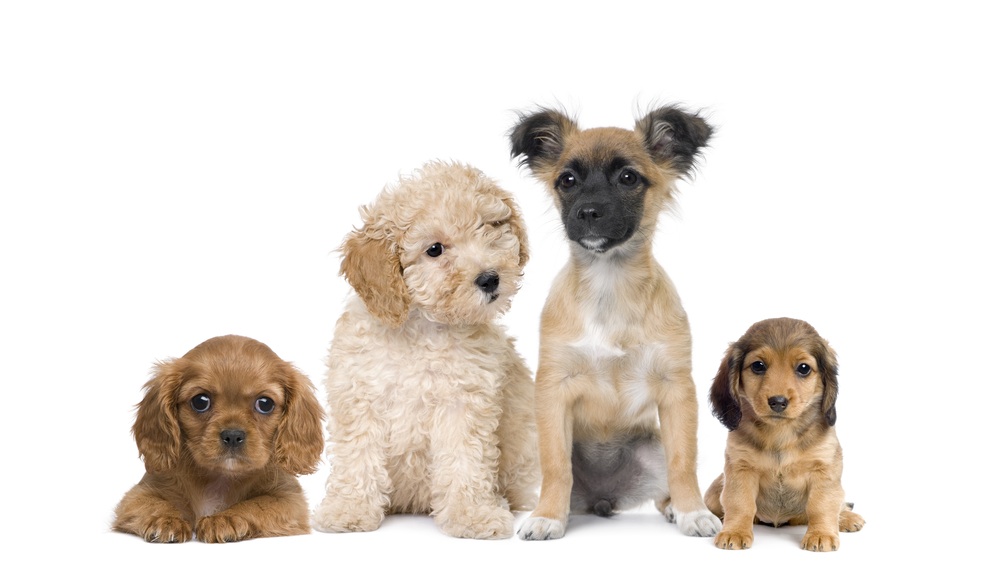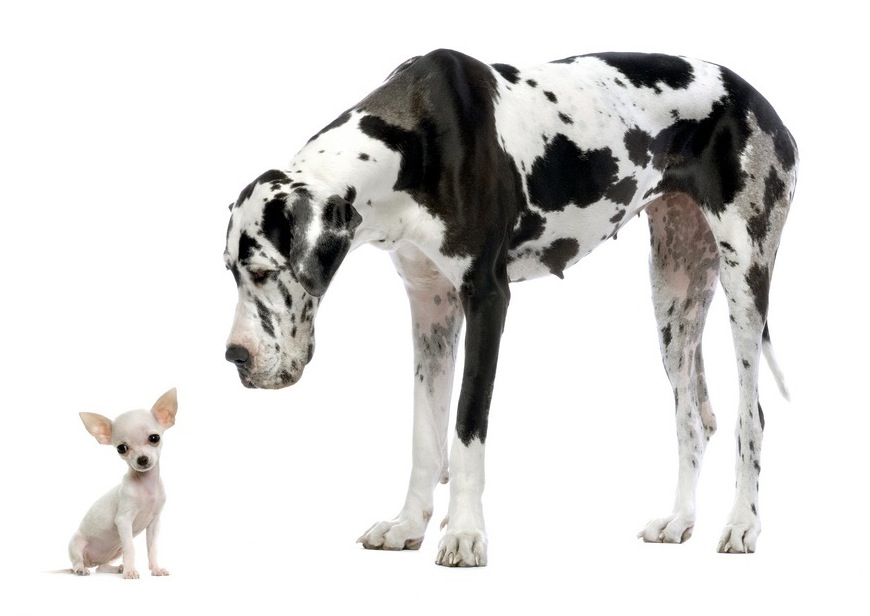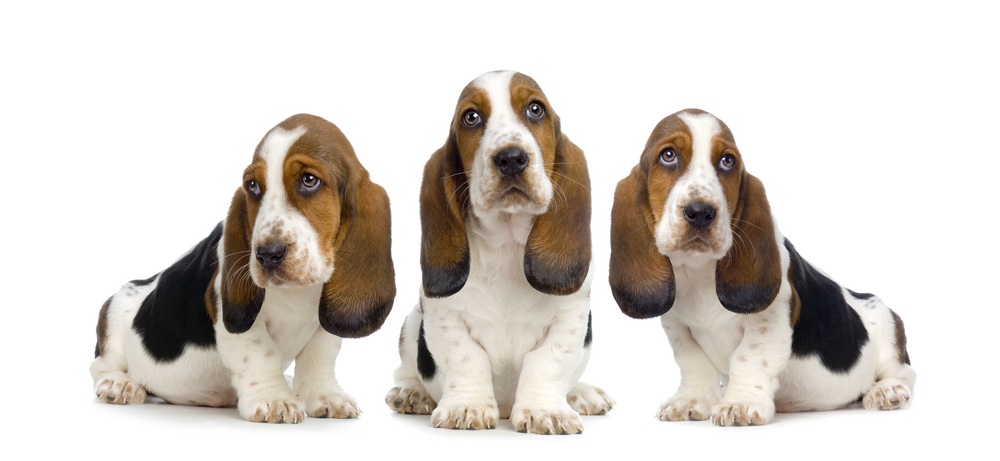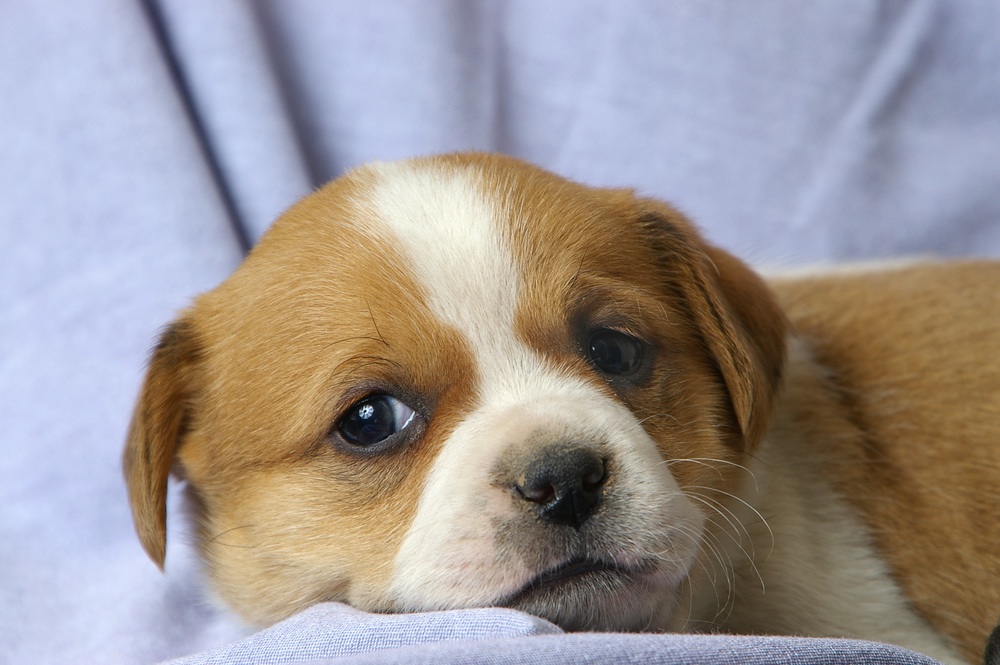We're thinking of acquiring a puppy for the first time. Neither of us have had a dog before. Can you advise us please?

All puppies look cute, but ultimately, they will grow into dogs of various sizes with different needs, in terms of training, exercise and grooming. You therefore need to choose your puppy with great care. In the case of a pure-bred puppy, its size will correspond to that of its parents. The range in size occurring in the world's 350 or so breeds, from a Chihuahua to a Great Dane, as seen below. You can also guess quite accurately on this basis in the case of a 'designer' cross-bred, knowing the parents. But things are harder with a mutt.
The best clue comes from looking at the feet. If these are large compared with the body itself, the puppy will develop into a relatively big dog.

Size is important, and not just in terms of the space that your pet will occupy in the home. Big dogs have correspondingly larger appetites, and so will be more expensive to keep, while sadly, their lifespan is also likely to be several years shorter than that of smaller individuals.
What about buying a pedigree pooch?

If you have your heart set on owning a pure-bred dog, don't be seduced by appearance alone. In order to gain an accurate insight of what to expect from a particular breed, you must look into its background, to ensure its requirements match your lifestyle. Again, look up the breeds that appeal to you in our directory, to gain an insight into their lifestyles.
It often helps to choose a group first. Sheepdogs for example will become restless if confined at home for long periods. These dogs must also have plenty of opportunity to run around and play every day, to prevent them from becoming bored.
The hound breeds are also naturally exuberant, with friendly, affectionate natures. But training a hound puppy is likely to require considerable patience on your part, especially since these dogs will often race off readily but can be far more reluctant to return when called.
Gundogs were developed to work closely with people, and so breeds such as the Labrador retriever make excellent companions, being very responsive. They too are full of energy however, and so are not best-suited to living in urban surroundings with very limited opportunities for exercise.
Although terriers may be small in stature, they have brave natures usually combined with an independent streak and masses of energy. They are often not particularly patient with children however, and so for a young family, a true companion breed such as a Cavalier King Charles spaniel can be a better choice.
As for so-called designer dogs, bred by crossing two distinct breeds, their appearance may be quite variable, but they are likely to have a temperament which lies between that of their parents. A puggle (see left), bred by crossing a beagle and pug, will therefore be easier to train than a beagle, but at the same time, it is likely to be more active and so will require more exercise than a pug.
What about the cost of the puppy ?
When it comes to price of a particular puppy, this will be influenced by various factors, such as the relative availability of the breed - scarce breeds cost more - and how highly that particular bloodline is valued in show circles. Responsible breeders have reputations to maintain and their dogs are likely to have been screened for inherited breed weaknesses such as hip dysplasia. Their puppies are likely to be more expensive as a result, but hopefully, you should be spared problems later on, which can be costly in terms of veterinary bills.
 puppy.jpg)
There are various directories featuring lists of breeders and you can also find advertisements offering puppies in the various dog magazines. Alternatively, you can contact the Kennel Club (www.the-kennel-club.org.uk) in the UK or their equivalent where you live if you are seeking a pure-bred puppy
If you are seeking a rare breed, then you may well have to be patient, until some puppies are available. Then arrange a convenient time to see the puppies on offer. Never agree to buy a puppy without having seen it first.
Young puppies which are used to the domestic environment will settle more quickly in a new home than those reared in kennels. Always be suspicious if you do not see their mother. This often suggests they could have been reared on other premises in less than ideal conditions. Should you have any doubts, go elsewhere to obtain your puppy.
Is it better to look at a litter before they are ready to go to a new home?

This is ideal, because it means that you are likely to be able to choose from a wider choice of puppies as a result. Otherwise, if you leave it, the majority of the litter may well have been sold before they are ready to go to a new home at about nine weeks old.
A decision which you will need to take at this stage, if not before, is whether to opt for a male dog or a bitch. Some owners prefer bitches, believing them to be more affectionate and easy to train, but you will be faced with the problem of their twice-yearly seasons, if you do not have your pet neutered.
This surgery is more expensive in the case of bitches, compared with dogs where the procedure is more straightforward, but to be recommended, not just to prevent unwanted litters but will also help to prevent against disorders of the reproductive tract such as pyometra.